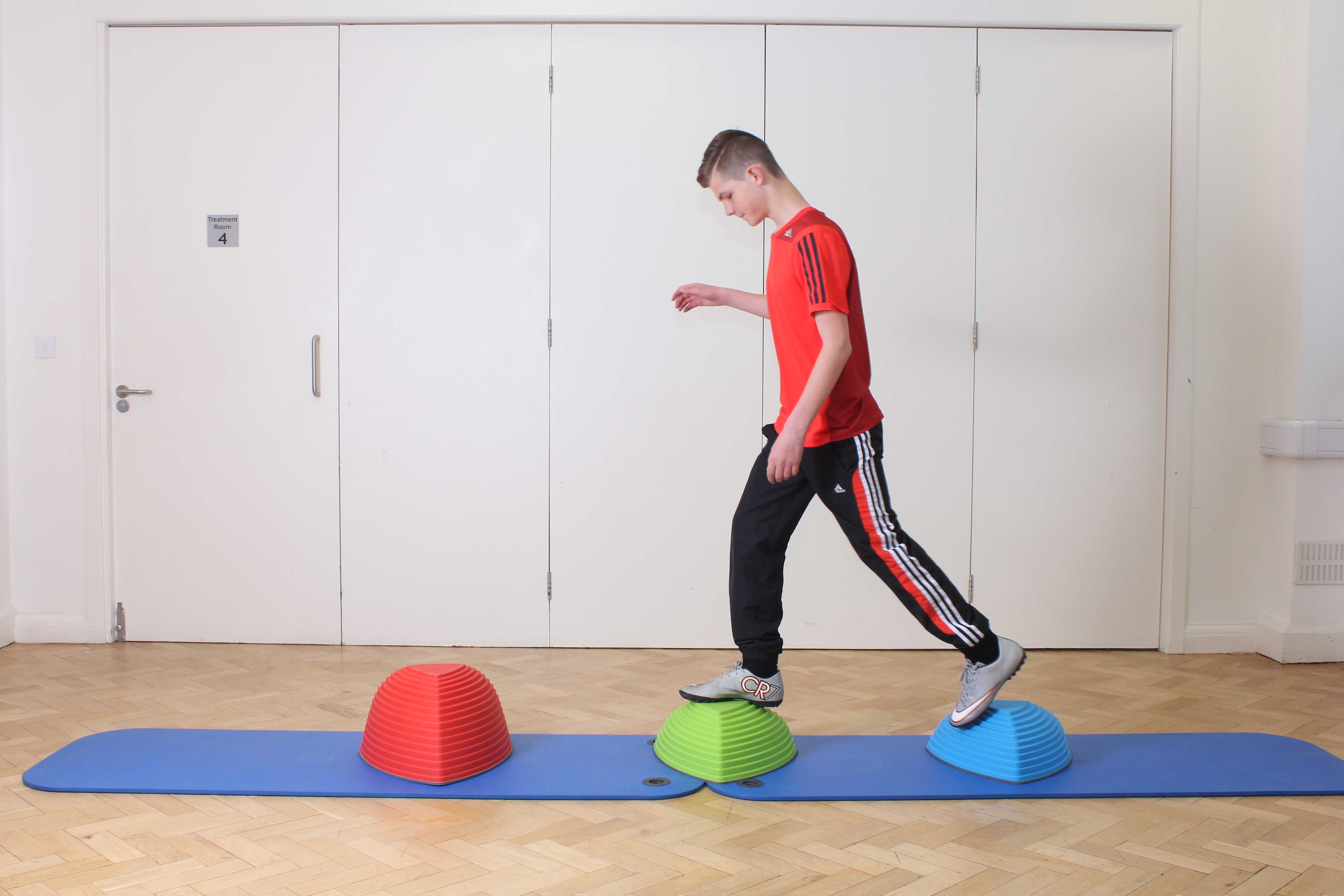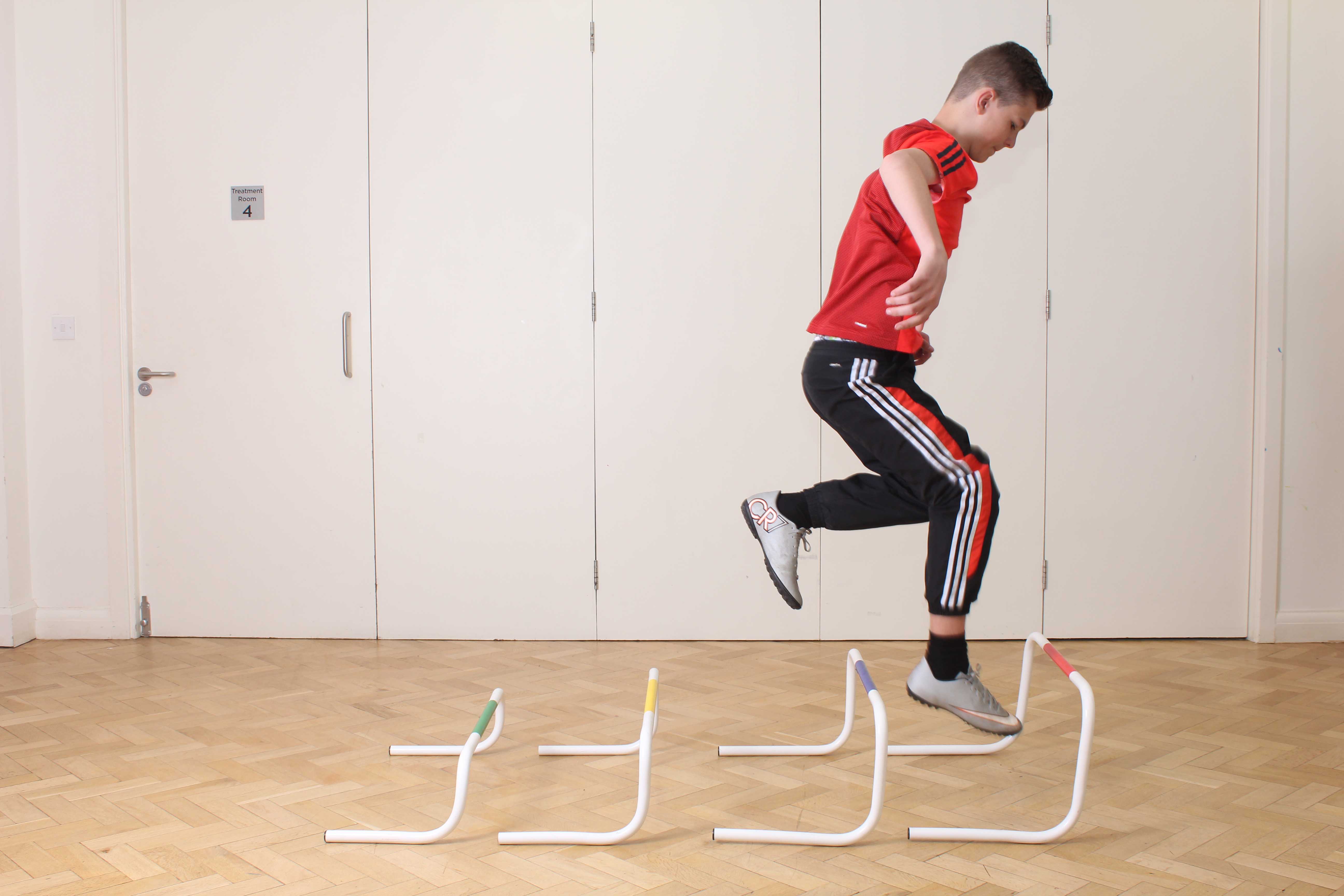What is Sever’s disease?
Sever’s disease is a condition affecting the growth plate at the back of the heel bone (calcaneus). It is commonly seen in young athletes. Physiotherapy is an important treatment for sever’s disease.
How does Sever’s disease happen?
The muscles of the calf attach to the heel via the Achilles tendon. This tendon transmits forces produced by the calf muscles to the heel bone. In children, the part of the heel bone that the Achilles tendon attaches to is separated from the main body of the heel bone by a growth plate. The growth plate allows the bone to grow and is not present in adults. The growth plate, however, is a weak point of the bone. Sever’s disease commonly occurs during growth spurts in children that are very active. This is because, as the child grows, the muscles and tendons get tighter and the high levels of activity put stress on the growth plate within the heel bone.
 Above: Ankle stability exercises, with supportive tape, supervised by therapist
Above: Ankle stability exercises, with supportive tape, supervised by therapistWhat are the symptoms of Sever’s disease?
Sever’s disease is causes pain at the back of the heel. Pain is often worsened during and after activity. The back of the heel may also be tender to touch and swollen. Other symptoms may include:
What should I do if my child has Sever’s disease?
If your child is experiencing these symptoms and you suspect that it may be Sever’s disease you should arrange an appointment with a physiotherapist as soon as possible. You should also limit their participation in sports until the assessment.
What shouldn’t I do if my child has Sever’s disease?
If you suspect that your child has Sever’s disease, you should not encourage them to exercise through the pain as this could increase the damage to the growth plate.
 Above: Measuring ankle plantaflexion using a goniometer
Above: Measuring ankle plantaflexion using a goniometerPhysiotherapy treatment for Sever’s disease.
A physiotherapy assessment and treatment is important in the successful treatment of Sever’s disease. Your physiotherapist will be able to diagnose the injury and the extent of the damage. Following the assessment, your physiotherapist will determine an appropriate management plan. Treatment may involve an initial period of rest and soft tissue treatment such as massage, electrotherapy and stretching to reduce the pain. Other symptoms may include:
Could there be any long-term effects from Sever’s disease?
Sever’s disease does not produce any long-term effects. It will not interfere with their growth and the pain will eventually settle. However, it could take up to twelve months for the pain to settle completely.
To arrange a physiotherapy appointment call Physio.co.uk on 0330 088 7800 or book online.

 0330 088 7800
0330 088 7800

































